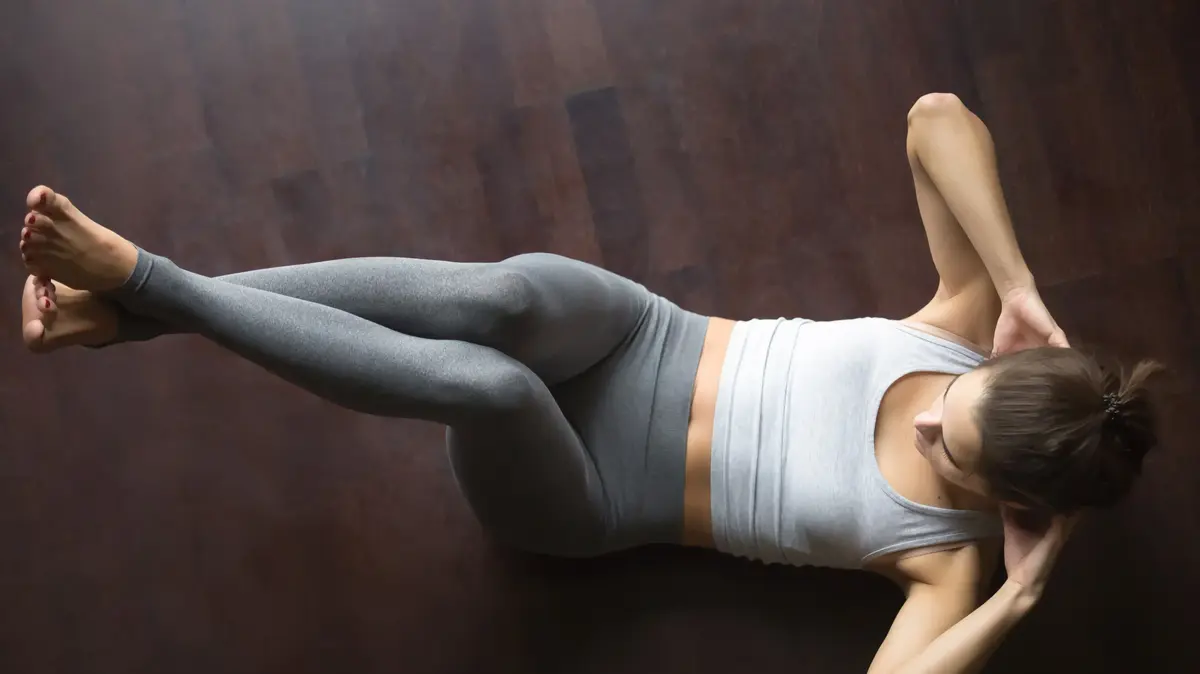This is the right way to do sit-ups (Or German, fitness trainer)
Have you decided to make a change in your life and start exercising and eating right?
Now you have to choose the professionals who will accompany you.
Choosing a fitness trainer, nutritionist or dietitian is not an easy choice when there are so many professionals in the field.
The web is full of advertisements, articles and sponsored ads.
But how will I know how to choose the trainer that suits me and my lifestyle?
How will I know that the dietitian recommended to me will indeed understand my needs?
Just as you would choose a dentist with a license to practice medicine or you would only check your child's eyes at a qualified optometrist, so it is important to choose the professional who will accompany you in the processes of a healthy lifestyle, weight loss, toning and any goal you have set for yourself.
Leonor Okstein, certified fitness trainer and Rona Even, nutritionist and clinical dietitian (bachelor's degree), founders of the "Mom Returns to Jeans" community, have some answers that will help you sort out the mess:
How to choose a trainer or fitness trainer?
1. Choose a professional trainer who specializes in your field
.
Many do not know but in fitness training there are many types of specialization such as specialization in the third age, pregnant and postpartum women, specialization in sports injuries, specialization in functional training, CrossFit and more.
Look for a trainer who specializes in a field that concerns you, a field you connect with.
You may have received great recommendations for a fitness trainer, but he mainly specializes in running and aerobic training and you are actually looking for strength or flexibility training.
Every workout is different, so it's very important to understand what you want to achieve and only then check the trainer that will suit that.
Check that it is a professional.
Two people working out in the gym (Photo: ShutterStock)
2. Personal connection.
Have you chosen the training you are connecting to?
Did you receive a recommendation from your close environment for a trainer?
Now the most important thing is the "click".
Yes, there is such a thing, and precisely in an intimate situation such as personal training, there should be a good connection between the trainer and the trainee.
Check if the coach sees you during training?
Is he attentive to you?
Does he see when it's too hard for you?
Do you actually need a stronger push?
All of these are very important in order to know and understand if this is the coach you will continue with your training routine.
3. The training method
is the one that will eventually make you persist or give up.
Each trainer comes with a different training method and a different training approach.
Some will combine a variety of techniques, some will prefer to focus on one technique, some will push you further and further and others will build the challenge in a gradual and slower way.
Choose the workout that feels right for you.
Look for a challenging workout on the one hand but that you can withstand for a long time.
How do you choose a nutritionist?
1. Certificate of a certified nutritionist/dietitian from the Ministry of Health.
It is true that today people who have lost weight on their own tend to open weight loss workshops and even present results, but this is not the main point in the process.
A qualified dietitian who did a bachelor's degree in nutritional sciences and then almost a year of internship in the major hospitals in Israel and then passed a certification document on behalf of the Ministry of Health, can see the complete health picture and build an accurate menu based on the blood tests and the health profile.
The qualification of the professional can be checked on the website of the Ministry of Health.
Only go to a certified dietitian.
Healthy diet (Photo: ShutterStock, illustration)
2. Personal connection to the dietitian or nutritionist.
As in choosing a fitness trainer, here too there is meaning and importance to a personal connection.
After you have chosen the professional and checked him in the database of the Ministry of Health, it is important to check what his treatment approach is and whether it fits and integrates into your life.
There are more strict nutritional approaches and there are more open approaches such as intuitive eating.
A personal connection to the therapist and his approach are one of the most important keys to success in the process and maintaining the achievements in the long term.
3. Convenience.
Choosing the professional should suit you and not oppress you.
If the meetings are face-to-face, it is important that they are close and that you do not feel uncomfortable before the meetings.
If the meetings are online, it is important to make sure that the hours, the food, the communication are convenient for you.
The more comfortable you are, the more likely you will stick to the meetings and the process and achieve success.
If you thought you chose the trainer that suits you or the nutritionist that answers exactly what you were looking for and along the way you realized that something there is not working, you can reflect this to the professionals, share your feelings with them and if you feel that it is not the one, you can say goodbye.
There are excellent professionals who can help you reach the goals you have set for yourself and sometimes all you need is patience.
health
Tags
capacity
diet
diet
Exercise

